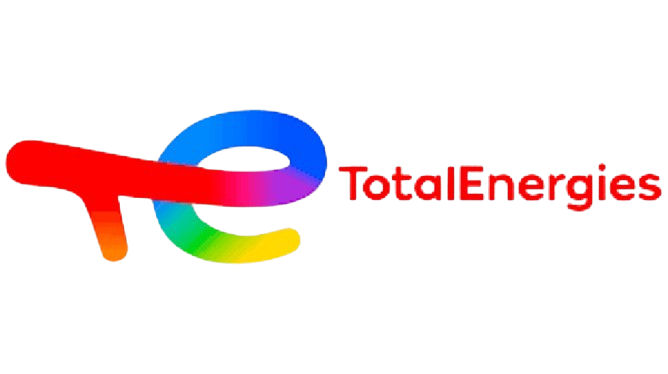DevOps Professional TRAINING HIGHLIGHTS IN NAPIER , NEW ZEALAND
The Most Effective DevOps Professional Exam Preparation
HIGH DEMAND FOR DEVOPS PROFESSIONALS IN NAPIER , NEW ZEALAND
DevOps Professional Among the Highest Paying Certifications





















WHY SCHOLARACAD FOR DevOps Professional TRAINING IN NAPIER , NEW ZEALAND
The ScholarAcad Advantage
DevOps Professional CERTIFICATION COURSE REVIEWS IN NAPIER , NEW ZEALAND
Our Learners Love Us
Scholaracad's Business Analysis Foundation course with Umesh was very helpful. His explanations were easy to understand, and the practical insights were great for understanding the New Zealand context. The Scholaracad team was always available to assist. Thanks!

Scholaracad's COBIT course with Umesh was very helpful. His explanations were easy to understand, and the practical insights were great for understanding the New Zealand context. The Scholaracad team was always available to assist. Thanks!

The PRINCE2 Foundation and Practitioner training with Scholaracad was fantastic. Trainer David did an amazing job of explaining both levels clearly, using examples relevant to New Zealand. The Scholaracad team was super helpful and responsive throughout. Kia ora!

1. DevOps Adoption
- Basic concepts of DevOps
- Principles of the Three Ways
- Organization
2. The First Way: Flow
- Deployment pipeline
- Automated testing
- Continuous integration
- Low-risk releases
3. The Second Way: Feedback
- Telemetry
- Feedback
- Hypothesis-driven development and A/B-testing
- Review and coordination
View More
DevOps Professional CERTIFICATION PATH
Your Path to Acing Your DevOps Professional Exam

Engage with online forums, meetups, and conferences to connect with like-minded professionals.
Understand the core principles of collaboration, automation, and continuous improvement.
Incorporate DevOps principles into your daily work to gain hands-on experience.
Experiment with automating tasks to improve efficiency and reduce errors.
Understand how ITIL and Agile can complement each other in a DevOps environment.
Assess your current understanding of DevOps concepts and identify areas that need improvement.
Practice relaxation techniques to manage exam-day stress.
WHAT YOU WILL LEARN
Learning Objectives
WHO CAN ATTEND THE DevOps Professional CERTIFICATION TRAINING IN NAPIER , NEW ZEALAND
Who This Course Is For

PREREQUISITES FOR DevOps Professional IN NAPIER , NEW ZEALAND
Prerequisites and Eligibility
Training: Taking a DevOps Professional training course can help you prepare for the exam
Exam: You must take and pass the DevOps Professional exam, which consists of 50 multiple-choice questions. A score of 65% or higher is required to pass.

DevOps Professional CERTIFICATION FAQS
1. How can DevOps Professional certification enhance my career?
DevOps Professional certification can enhance your career by:
- Demonstrating your expertise in advanced DevOps principles and practices
- Improving your job prospects
- Increasing your earning potential
- Providing professional development opportunities
2. What career opportunities are available with DevOps Professional certification?
DevOps Professional certification can open doors to various career opportunities, including:
- DevOps Architect
- DevOps Manager
- DevOps Consultant
- IT Operations Manager
3. Does DevOps Professional certification lead to higher salaries?
Yes, DevOps Professional certification can lead to higher salaries by demonstrating your expertise in a specialized area of IT.
4. How does DevOps Professional certification impact career growth?
DevOps Professional certification can impact your career growth by:
- Demonstrating your expertise
- Opening doors to new opportunities
- Increasing your earning potential
- Providing professional development
5. What industries value DevOps Professional certification the most?
DevOps Professional certification is valued in a variety of industries, including:
- Technology
- Financial services
- Healthcare
- E-commerce
6. How does DevOps Professional certification compare with other IT certifications for career advancement?
DevOps Professional certification can provide a competitive edge over other IT certifications, as it focuses specifically on advanced DevOps principles and practices.
7. Can DevOps Professional certification help in transitioning to DevOps roles?
Yes, DevOps Professional certification can help you transition to DevOps roles by demonstrating your expertise in DevOps principles and practices.
8. What are the career paths after obtaining DevOps Professional certification?
DevOps Professional certification can open doors to various career paths, including:
- DevOps Architect
- DevOps Manager
- DevOps Consultant
- IT Operations Manager
9. How to leverage DevOps Professional certification for career development?
To leverage DevOps Professional certification for career development, you can:
- Network with other certified professionals
- Seek out new opportunities
- Continue to develop your skills
- Showcase your certification on your resume and LinkedIn profile
10. What are the long-term career benefits of DevOps Professional certification?
The long-term career benefits of DevOps Professional certification include:
- Increased earning potential
- Career advancement
- Job security
- Professional development
- Networking opportunities
11. How can DevOps Professional certification help in leadership roles?
DevOps Professional certification can help you develop the skills and knowledge needed to succeed in leadership roles, such as:
- Strategic thinking
- Problem-solving
- Decision-making
- Team management
12. What is the demand for DevOps Professional certified professionals?
The demand for DevOps Professional certified professionals is growing as organizations adopt DevOps practices.
13. How does DevOps Professional certification affect job security?
DevOps Professional certification can improve job security by making you a more valuable asset to your organization and increasing your marketability.
14. What are the common career challenges faced by DevOps Professional certified professionals?
Common career challenges faced by DevOps Professional certified professionals may include:
- Keeping up with rapidly changing technology
- Balancing competing priorities
- Managing complex projects
15. How does DevOps Professional certification support professional development?
DevOps Professional certification supports professional development by:
- Providing a structured framework for learning
- Enhancing your skills and knowledge
- Networking opportunities
16. Can DevOps Professional certification open doors to international careers?
Yes, DevOps Professional certification is recognized globally, which can increase your chances of securing international job opportunities.
17. What role does DevOps Professional certification play in career advancement?
DevOps Professional certification can play a significant role in career advancement by demonstrating your expertise and opening doors to new opportunities.
18. How to negotiate a salary increase with DevOps Professional certification?
When negotiating a salary increase, highlight the value that DevOps Professional certification brings to the organization and how it aligns with your career goals.
19. What are the networking opportunities for DevOps Professional certified professionals?
DevOps Professional certification can provide networking opportunities through industry events, online forums, and professional organizations.
20. How to showcase DevOps Professional certification on a resume?
- List your certification prominently on your resume
- Highlight the skills and knowledge you gained
- Quantify the benefits you have brought to your previous roles
21. What are the career opportunities for DevOps professionals?
DevOps professionals can find opportunities in a variety of industries, including:
- Technology
- Financial services
- Healthcare
- E-commerce
22. How to transition into a DevOps career from a different IT role?
- Gain a solid understanding of DevOps principles and practices
- Develop relevant skills
- Network with DevOps professionals
- Consider taking a DevOps certification
23. What is the average salary for a DevOps engineer in 2024?
The average salary for a DevOps engineer in 2024 can vary depending on location, experience, and other factors. However, DevOps professionals generally command competitive salaries.
24. How to advance in a DevOps career?
- Continuously develop your skills
- Network with other DevOps professionals
- Seek out new opportunities
- Consider obtaining advanced certifications
25. What skills are essential for a successful DevOps career?
- Technical skills: scripting languages, automation tools, cloud platforms
- Soft skills: collaboration, problem-solving, communication, leadership
26. How to find DevOps job openings?
- Use job search engines
- Network with other DevOps professionals
- Check company websites
- Leverage social media
27. What are the most common DevOps career paths?
- DevOps Engineer
- DevOps Architect
- DevOps Manager
- DevOps Consultant
28. How to prepare for a DevOps job interview?
- Research the company and the role
- Practice common interview questions
- Highlight your DevOps skills and experience
29. What is the future of DevOps careers?
The future of DevOps careers is promising, with increasing demand for DevOps professionals as organizations adopt DevOps practices.
30. How to build a career in DevOps from scratch?
- Gain a solid understanding of DevOps principles and practices
- Develop relevant skills
- Network with other DevOps professionals
- Consider taking a DevOps certification
31. How to move from a software developer to a DevOps role?
- Develop DevOps skills and knowledge
- Network with DevOps professionals
- Seek out opportunities within your organization
- Consider taking a DevOps certification
32. What are the top companies hiring for DevOps roles?
- Technology giants like Amazon, Google, Microsoft, and Facebook
- Financial services companies
- Healthcare organizations
- E-commerce companies
33. How to write a resume for a DevOps position?
- Highlight your DevOps skills and experience
- Quantify your achievements
- Use keywords relevant to DevOps
34. What are the most in-demand DevOps skills?
- Scripting languages (Python, Bash)
- Automation tools (Ansible, Puppet, Chef)
- Cloud platforms (AWS, Azure, GCP)
- Containerization (Docker, Kubernetes)
- Continuous integration and continuous delivery (CI/CD)
35. How to negotiate a salary for a DevOps position?
- Research industry standards
- Highlight your skills and experience
- Be prepared to negotiate
36. What certifications are best for a DevOps career?
- DevOps Professional
- Certified DevOps Engineer (CDE)
- Certified DevOps Architect (CDA)
37. How to switch from a traditional IT role to DevOps?
- Gain a solid understanding of DevOps principles and practices
- Develop relevant skills
- Network with DevOps professionals
- Consider taking a DevOps certification
38. What is the career progression for a DevOps engineer?
The career progression for a DevOps engineer typically includes:
- DevOps Engineer
- Senior DevOps Engineer
- DevOps Team Lead
- DevOps Architect
- DevOps Manager
39. How to build a strong portfolio for a DevOps career?
- Contribute to open-source projects
- Create personal projects
- Showcase your skills on platforms like GitHub
40. What are the challenges of a DevOps career?
- Keeping up with rapidly changing technology
- Balancing competing priorities
- Managing complex projects
41. How to network with DevOps professionals?
- Attend industry events
- Join online communities
- Participate in meetups and conferences
42. What are the best DevOps communities to join?
- DevOps subreddit
- DevOps Stack Overflow
- DevOps Slack channels
- LinkedIn DevOps groups
43. How to stay updated with the latest DevOps trends?
- Follow industry news and blogs
- Join professional organizations
- Attend conferences and webinars
44. What is the demand for DevOps professionals in different regions?
The demand for DevOps professionals varies across different regions, but there is generally a high demand in technology hubs and countries with growing IT sectors.
45. How to balance work-life in a DevOps career?
- Set boundaries
- Prioritize tasks
- Take breaks
- Practice self-care
46. What are the benefits of mentorship in a DevOps career?
- Guidance and support
- Career advice
- Networking opportunities
47. How to get a promotion in a DevOps role?
- Demonstrate your expertise
- Take on new responsibilities
- Network with your manager and colleagues
48. What are the top DevOps job boards?
- Indeed
- Glassdoor
- Dice
49. How to prepare for DevOps leadership roles?
- Develop your leadership skills
- Build a strong network
- Seek out mentorship opportunities
- Consider taking leadership certifications
50. What are the common mistakes in a DevOps career?
- Neglecting soft skills
- Failing to stay updated with industry trends
- Not building a strong network
51. How to switch from DevOps to a cloud engineering role?
- Develop cloud computing skills
- Consider taking cloud certifications
- Network with cloud professionals
52. What are the key differences between DevOps and SRE roles?
- DevOps focuses on collaboration between development and operations teams
- SRE focuses on site reliability and incident response
53. How to start a DevOps consultancy?
- Gain experience in DevOps
- Build a network of clients
- Develop a business plan
54. What are the best practices for DevOps career growth?
- Continuously develop your skills
- Network with other DevOps professionals
- Seek out new opportunities
- Consider taking advanced certifications
55. How to choose the right DevOps tools for career development?
- Consider your career goals
- Research popular DevOps tools
- Experiment with different tools
56. How to get into DevOps without prior experience?
- Start with online courses or tutorials
- Contribute to open-source projects
- Network with DevOps professionals
57. What are the best certifications for a DevOps manager?
- DevOps Professional
- Certified DevOps Architect (CDA)
- ITIL
58. How to build a successful DevOps team?
- Foster a culture of collaboration and innovation
- Hire the right people
- Provide adequate training and development
- Encourage continuous improvement
59. How to transition from DevOps to DevSecOps?
- Develop security skills
- Consider taking security certifications
- Network with DevSecOps professionals
60. What are the top industries hiring DevOps professionals?
- Technology
- Financial services
- Healthcare
- E-commerce
61. How to start a career in DevOps automation?
- Learn automation tools like Ansible, Puppet, or Chef
- Contribute to open-source projects
- Network with DevOps professionals
62. How to become a DevOps architect?
- Gain experience in DevOps principles and practices
- Develop strong technical skills
- Demonstrate leadership abilities
63. How to get a remote job in DevOps?
- Update your resume and LinkedIn profile
- Network with DevOps professionals online
- Use job search engines that specialize in remote work
64. How to stay competitive in a DevOps career?
- Continuously develop your skills
- Stay updated with industry trends
- Network with other DevOps professionals
65. What are the long-term career prospects in DevOps?
The long-term career prospects in DevOps are promising, with increasing demand for DevOps professionals as organizations adopt DevOps practices.
66. How to prepare for the future of DevOps?
- Stay updated with industry trends
- Develop new skills
- Network with other DevOps professionals
67. What are the most important soft skills for a DevOps career?
- Collaboration
- Communication
- Problem-solving
- Leadership
- Adaptability
68. How to leverage networking for DevOps career growth?
- Attend industry events
- Join online communities
- Participate in meetups and conferences
- Connect with other DevOps professionals on LinkedIn
69. How to transition from DevOps to site reliability engineering (SRE)?
- Develop skills in site reliability engineering
- Consider taking SRE certifications
- Network with SRE professionals
70. What are the career opportunities in DevOps consulting?
DevOps consultants can work with organizations to implement DevOps practices and improve their IT operations.
View More
RECOMMENDED BLOGS FOR DevOps Professional CERTIFICATION
Expert Articles on DevOps Professional
Read More...
Read More...
Read More...
Napier: A Hub for Technology, Learning, and Careers
Napier is a city in New Zealand, known for its strong focus on technology, innovation, and economic diversification. It is leveraging its strategic location and strong educational institutions to attract startups and innovation hubs, particularly in areas like fintech, AI, and renewable energy.
Key Locations
- Napier Tech Hub : A hub for startups and innovation focused on fintech, AI, and renewable energy.
- Proximity to Wellington : Access to global tech firms drives innovation.
Why These Skills Are in Demand
Napier’s tech sector is driven by its proximity to Wellington and its focus on fintech, AI, and cybersecurity. Key skills in Project Management, Service Delivery, Agile, DevOps, and SAFe Agile are essential.
- Fintech : Napier is exploring innovations in mobile banking, blockchain, and crypto. Skills in fintech are in high demand.
- AI and Machine Learning : With a focus on smart cities, healthcare, and autonomous systems, Napier needs professionals skilled in AI-driven solutions. Universities like Massey University are driving AI research.
- Cybersecurity : Protecting critical systems in finance, government, and telecommunications is crucial. As Napier expands its digital infrastructure, professionals skilled in cyber resilience ensure safety against cyber threats.
Need More Information ?
Have more questions or need personalized guidance ?

Our DevOps Professional Instructors in Napier
Based in: Auckland, New Zealand
Looking to master Service Integration and Management with SIAM Professional in New Zealand? Meet Mathew John, an accredited SIAM and ITIL trainer based in Auckland. Mathew is dedicated to providing comprehensive training in SIAM and its integration with ITIL 4.
Professional Background:
Mathew has over 10 years of experience in IT Service Management, focusing on managing multi-vendor environments and service integration strategies across various industries in New Zealand.
Certifications & Strong Knowledge:
- ITIL® 4 Foundation
- SIAM™ Foundation
- SIAM™ Professional
- Strong Knowledge: ITSM, AWS Datacenter
Teaching Philosophy:
Mathew believes in a practical and collaborative approach, focusing on real-world challenges and effective service integration strategies. His teaching philosophy emphasizes:
- Understanding ITIL 4 Principles: Deeply exploring the guiding principles of ITIL 4 and their relevance to SIAM.
- Mastering SIAM Framework: Providing practical insights into the SIAM Foundation and Professional frameworks.
- Multi-Vendor Management: Focusing on the skills needed to manage complex, multi-sourced IT environments.
- Exam Success Focus: Providing comprehensive preparation for SIAM Foundation and Professional exams.
Course Offerings:
Mathew offers a range of ITIL and SIAM training programs:
- ITIL® 4 Foundation Certification Courses (In-Person and Virtual).
- SIAM™ Foundation Certification Courses.
- SIAM™ Professional Certification Workshops.
- Customized ITIL and SIAM Training for Organizations in New Zealand.
Why Choose Ben?
- Local Expertise: Based in Auckland, Mathew understands the New Zealand IT landscape.
- SIAM Focus: Expertise in both SIAM Foundation and Professional.
- Practical Experience: Known for his real-world insights into service integration.
- Strong Datacenter Knowledge: Understanding of AWS Datacenter infrastructure.
Location:
Mathew is based in Auckland, New Zealand, and offers training across New Zealand and virtually.

Mathew John
Experience: 10 years
Based in: Auckland, New Zealand
Looking to master Service Integration and Management with SIAM Professional in New Zealand? Meet Mathew John, an accredited SIAM and ITIL trainer based in Auckland. Mathew is dedicated to providing comprehensive training in SIAM and its integration with ITIL 4.
Professional Background:
Mathew has over 10 years of experience in IT Service Management, focusing on managing multi-vendor environments and service integration strategies across various industries in New Zealand.
Certifications & Strong Knowledge:
- ITIL® 4 Foundation
- SIAM™ Foundation
- SIAM™ Professional
- Strong Knowledge: ITSM, AWS Datacenter
Teaching Philosophy:
Mathew believes in a practical and collaborative approach, focusing on real-world challenges and effective service integration strategies. His teaching philosophy emphasizes:
- Understanding ITIL 4 Principles: Deeply exploring the guiding principles of ITIL 4 and their relevance to SIAM.
- Mastering SIAM Framework: Providing practical insights into the SIAM Foundation and Professional frameworks.
- Multi-Vendor Management: Focusing on the skills needed to manage complex, multi-sourced IT environments.
- Exam Success Focus: Providing comprehensive preparation for SIAM Foundation and Professional exams.
Course Offerings:
Mathew offers a range of ITIL and SIAM training programs:
- ITIL® 4 Foundation Certification Courses (In-Person and Virtual).
- SIAM™ Foundation Certification Courses.
- SIAM™ Professional Certification Workshops.
- Customized ITIL and SIAM Training for Organizations in New Zealand.
Why Choose Ben?
- Local Expertise: Based in Auckland, Mathew understands the New Zealand IT landscape.
- SIAM Focus: Expertise in both SIAM Foundation and Professional.
- Practical Experience: Known for his real-world insights into service integration.
- Strong Datacenter Knowledge: Understanding of AWS Datacenter infrastructure.
Location:
Mathew is based in Auckland, New Zealand, and offers training across New Zealand and virtually.

Mathew John
Experience: 10 years
Based in: Auckland, New Zealand
Looking to achieve your PMP certification in New Zealand with a trainer who brings an engaging and practical approach to learning? Meet Ben Carter, an experienced and certified PMP instructor based in Auckland. Ben is dedicated to helping project professionals in New Zealand succeed in their PMP journey through interactive and relevant training.
Professional Background:
Ben has over 10 years of experience managing projects in the technology, construction, and primary industries across New Zealand. His experience includes working with both local businesses and government organizations, providing him with a solid understanding of project management in the New Zealand context. He is proficient in both traditional Waterfall and Agile methodologies and emphasizes clear communication and teamwork.
Certifications:
- **Project Management Professional (PMP)**®
- **PMI Agile Certified Practitioner (PMI-ACP)**®
Teaching Philosophy:
Ben believes in creating an engaging and supportive learning environment where participants feel motivated and equipped to succeed. His teaching philosophy focuses on:
- Relating to the New Zealand Context: Connecting PMBOK® Guide principles to real-world scenarios and case studies relevant to the New Zealand business environment and industry practices.
- Interactive and Collaborative Learning: Utilizing group discussions, practical exercises, and real-world examples to reinforce learning.
- Focus on Exam Success Strategies: Equipping students with effective test-taking techniques and ample practice questions.
- Career Development in New Zealand: Providing insights and guidance on project management career paths in the New Zealand market.
Course Offerings:
Ben offers a range of PMP training programs tailored to the needs of professionals in New Zealand:
- Comprehensive PMP Exam Preparation Courses (In-Person in Auckland and Virtual): In-depth programs covering all aspects of the PMBOK® Guide and the PMP exam.
- Weekend PMP Prep Workshops: Flexible options for working professionals across New Zealand.
- Customized PMP Training for Organizations: Tailored programs for companies in New Zealand looking to upskill their project management teams.
Why Choose Ben?
- Based in New Zealand's Largest City: Located in Auckland, Ben offers in-person training options in a key business center and virtual sessions across New Zealand and the wider region.
- Understanding of the New Zealand Business Environment: His experience in the New Zealand market provides valuable context and relevant examples.
- Engaging and Supportive Teaching Style: Ben creates a positive and effective learning environment.
- Dedicated to Helping You Succeed: He is committed to providing the support and resources you need to confidently pass the PMP exam in New Zealand.
Location:
Ben is based in Auckland, New Zealand, and offers in-person training sessions in Auckland and virtual training programs for participants across New Zealand and the wider region.

Ben Carter
Experience: 10 years
DevOps Professional TRAINING CERTIFICATION IN NAPIER , NEW ZEALAND
Earn The Coveted DevOps Professional Certification
View More







